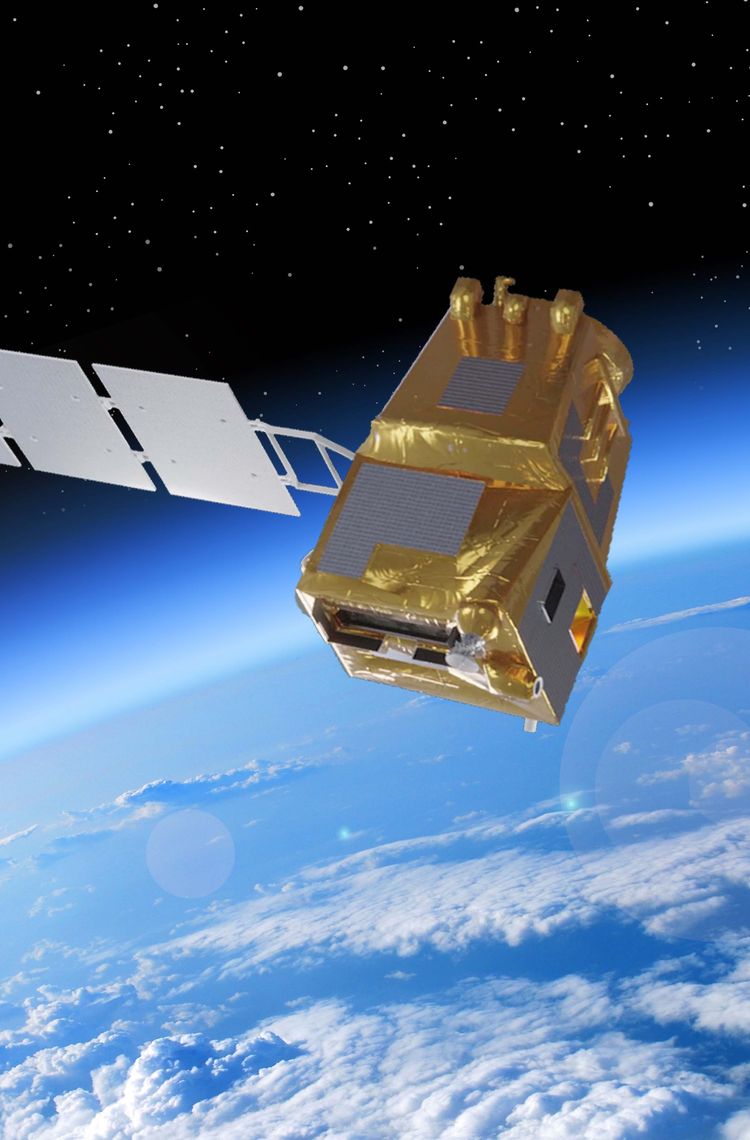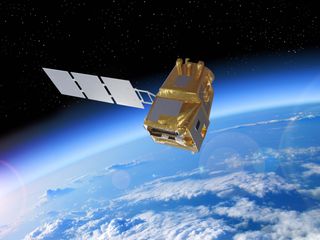Contract valued at € 380 million
Airbus Spain to lead industrial consortium: first Copernicus prime for Spain
Madrid, 13 November 2020 – The European Space Agency (ESA) has selected Airbus Defence and Space as prime contractor for the new Land Surface Temperature Monitoring (LSTM) mission. LSTM is part of Copernicus, the European Union's Earth observation programme for global monitoring. It is one of the six new missions, expanding the capabilities of the current Copernicus space component. The contract is valued at € 380 million which includes the development and building of two LSTM satellites.
The main objective of LSTM is to deliver global high spatio-temporal day- and night-time land surface temperature measurements. Satellite data analysis for mapping, monitoring and forecasting the Earth's natural resources helps to understand what, when and where changes are taking place. In particular, this mission will respond to the needs of European farmers to make agricultural production on individual farms more sustainable, as water shortages increase and changes in the environment take place. Specialists will be able to calculate in real time how much water different plants require in different areas, and how often those plants need to be irrigated.
Land-surface temperature measurements and derived evapotranspiration - the water vapour emitted by plants as they grow - are key parameters to understand and respond to climate variations, manage water resources for agriculture, and predict droughts. Thermal infrared observations will support a range of additional services to address land degradation, soil composition, natural hazards such as fires and volcano activity, coastal and inland water management as well as urban heat island issues.
Jean-Marc Nasr, Head of Space Systems at Airbus said: “Measuring surface temperatures will help make agricultural production more efficient across the planet, benefitting us all. With Airbus on board all Copernicus Sentinel satellites to date, we are delighted that ESA is further entrusting us with this next generation mission for the world’s most ambitious Earth observation programme. This contract again confirms Airbus’ position at the forefront of space technologies for Earth observation and as the world’s n°1 exporter.”
LSTM will operate from a low-Earth, polar orbit, to map both land-surface temperature and rates of evapotranspiration with unprecedented field-scale detail. It will be able to identify the temperatures of individual fields and image the Earth every three days at 50 m resolution. This is about 400 times more detail than is currently acquired from space. Its observations will cover a wide temperature range, from approx. -20°C to +30°C, with very high precision (0.3°C).
LSTM is the first Copernicus mission awarded to a Spanish company and the third ESA mission to be primed by Airbus in Madrid after the successful in orbit delivery of Cheops, the exoplanet hunter, and SEOSAT-Ingenio which is ready for launch. Being selected to lead this mission is a major milestone for space in Spain and again demonstrates ESA’s confidence in Airbus as a strong partner to prime ESA missions. The industrial consortium comprises more than 45 companies and institutions from up to 18 different countries. The support of the Spanish delegation to ESA was key in reaching this achievement.
Airbus has complete responsibility for the entire LSTM. It will design and build the LSTM satellite in Madrid, while the development and production of the advanced technology instrument will be carried out by Airbus in Toulouse.
The optical instrument flown on the LSTM satellite leverages Airbus’ latest innovations from programmes such as the Franco-Indian TRISHNA mission to offer a best-in-class instrument. It will acquire images in Very Near Infrared, Short Wave Infrared and Thermal Infrared. With a four day revisit capability, the satellite will fly over European latitudes when the sun, and consequently stress on crops, are at their highest, to facilitate evapotranspiration measurement.
Overall, Airbus is responsible for the spacecraft or payload on 3 of the 6 new generation Copernicus Environment and Earth observation missions: LSTM, CRISTAL and Rose-L, and is providing critical equipment to all six.
About Copernicus
The Copernicus Sentinels are a fleet of dedicated EU-owned satellites, designed to deliver the wealth of data and imagery that are central to the European Union's Copernicus environmental programme. The European Commission leads and coordinates this programme, to improve the management of the environment, safeguarding lives every day. The European Space Agency (ESA) is in charge of the space component, responsible for developing the family of Copernicus Sentinel satellites on behalf of the European Union and ensuring the flow of data for the Copernicus services, while the operations of the Copernicus Sentinels have been entrusted to ESA and EUMETSAT, the European Organisation for the Exploitation of Meteorological Satellites. Six new missions have been selected to join the fleet of Copernicus Sentinels and expand the current capabilities. Airbus is a key industrial contributor by developing and manufacturing satellites, instruments and components as well as providing related services.
@AirbusSpace #SpaceMatters @ESA_EO @CopernicusEU @CDTIoficial #CopernicusSentinel
Your media contacts
Contact us
Mathias Pikelj
Communications - Airbus Defence & Space
Ralph Heinrich
AIRBUS | Defence and Space
Francisco Lechón
External Communications - Airbus Space Systems, Spain
Jeremy Close
AIRBUS | Defence and Space
Guilhem Boltz
AIRBUS | Defence and Space

